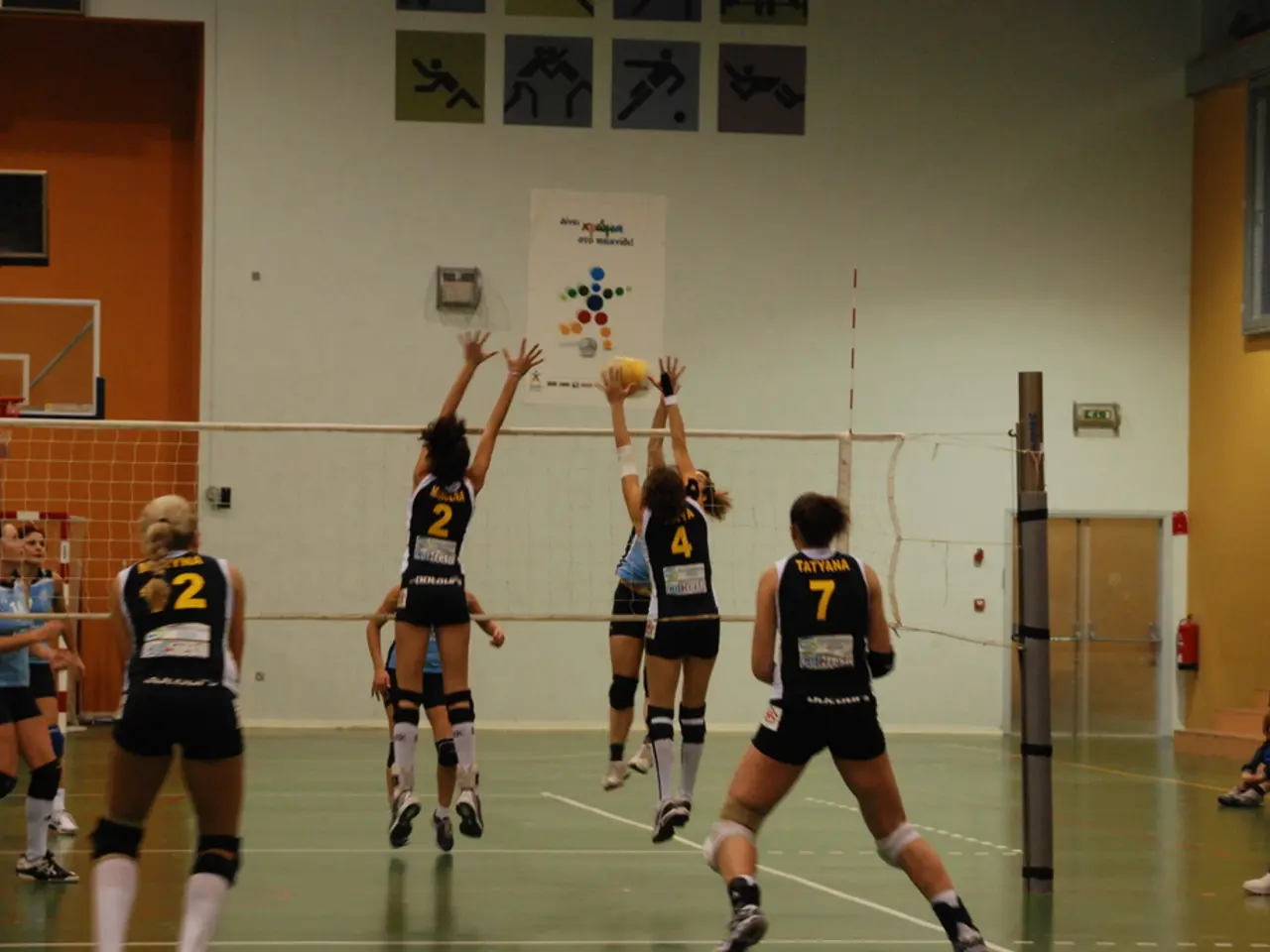Women's Sports Revolution: Bolstering Female Athletes for a Promising Tomorrow
The history of women in sports is a testament to resilience, determination, and the relentless pursuit of equality. From the early days of participation to the modern era, women have fought against social prejudices and institutional barriers to carve out a place for themselves in the world of sports.
Women first competed in the Olympic Games in 1900, with just 22 women out of 997 athletes participating. Over the decades, their involvement expanded slowly, with incremental gains such as the introduction of women-only events and increasing acceptance of women athletes in diverse disciplines.
One of the most significant milestones in the history of women in sports was the passage of Title IX in 1972, a landmark federal civil rights law in the United States that prohibits sex discrimination in any education program or activity receiving federal financial assistance. This law has had a transformative impact on gender equality in sports, dramatically increasing opportunities for girls and women to participate in school and collegiate athletics by requiring equal funding and resources.
The impact of Title IX is evident in the rise of professional women’s sports. The Women's National Basketball Association (WNBA) was founded in 1997, marking a key development in professional team sports for women in the US. The WNBA has grown from 8 teams to a planned expansion of 15 by 2026.
Endurance sports like triathlon and IRONMAN have also seen significant contributions from women, with Paula Newby-Fraser's multiple championships starting in the 1980s and the establishment of equal prize money in certain events by 1986.
The legacy of Title IX extends beyond the United States, influencing broader global trends and inspiring initiatives like the Global Sports Mentoring Program, which aims to expand the footprint of Title IX's message of equality and opportunity for women into every corner of the world.
However, despite these advancements, women athletes are still paid much less than their male counterparts, both at the player and coaching levels. The Cantwell-Capito Equal Pay Bill ensures all athletes who represent the United States in global competition receive equal pay and benefits, regardless of gender.
The journey towards gender equality in sports is far from over. The old stereotype that being a championship athlete isn't "ladylike" is gradually fading away, but more can be done to raise the level of awareness of women's athletics.
Notable figures in the fight for gender equality in sports include Diane Milutinovich, who sued her university for gender discrimination and was awarded substantial damages, and Alfreeda Goff, one of the first African-American coaches in women's sports and a tireless advocate for equality in women's sports for decades.
In the world of college sports, several women have made their mark, such as Dr. Karol Kahrs, who led the University of Illinois' women's athletic program and helped the university comply with Title IX, and Pat Summitt, who coached the University of Tennessee women's basketball team from 1974 to 2012, winning eight NCAA Division I basketball championships.
More recently, Becky Hammon has made history as a head coach in the WNBA and a former assistant coach for the NBA's San Antonio Spurs, breaking barriers for women in professional sports.
On a day honoring the work of women in sports, it is important to remember the pioneers who paved the way and the ongoing struggle for equal recognition, participation, and opportunities for women in sports. The history of women in sports is a story of perseverance, and it continues to be written every day.
In the realm of professional sports, marketing efforts have been instrumental in elevating the profile of women's leagues, such as the Women's National Basketball Association (WNBA), which has grown from 8 teams to a planned expansion of 15 by 2026, reflecting the growing interest and support for women's sports.
Moreover, the legacy of Title IX, a landmark federal civil rights law, has inspired initiatives like the Global Sports Mentoring Program, aiming to extend the message of gender equality in sports globally, ensuring that diverse operations and disciplines continue to cater to women's participation and opportunities in sports.






